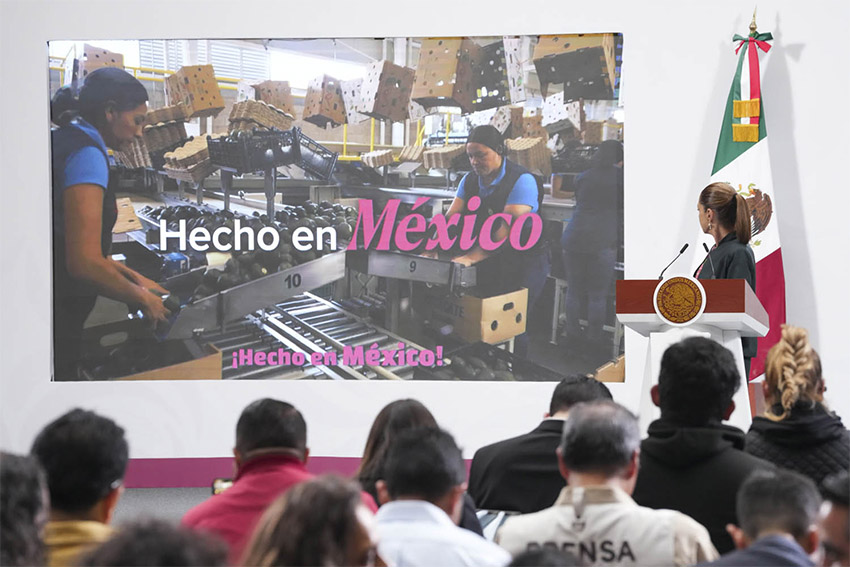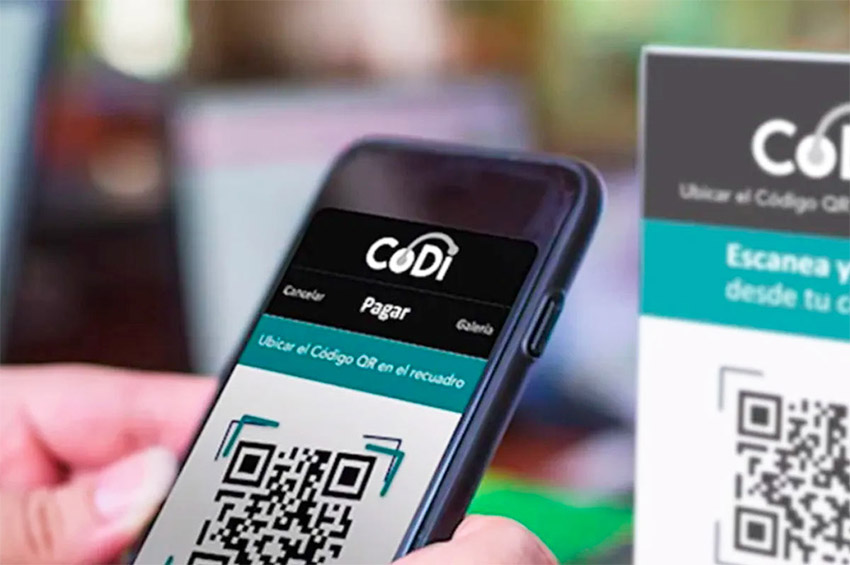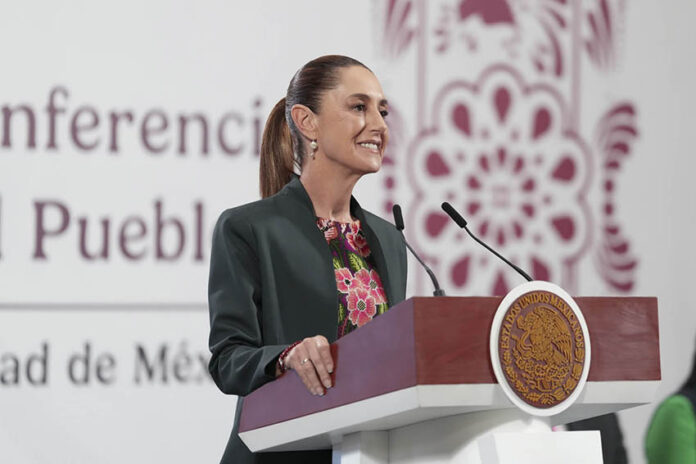Mexico’s growing export revenue and digital payment systems were among the topics President Claudia Sheinbaum spoke about at her Thursday morning press conference.
She also provided reporters with some details about the major speech she will make next Monday.
Here is a recap of the president’s Aug. 28 mañanera.
Despite US tariffs, Mexico’s exports continue to grow
A reporter noted that the national statistics agency INEGI published data that showed that the value of Mexico’s exports increased 4% annually in July despite a decrease in automotive exports.
INEGI’s data also showed that Mexico’s exports increased 4.3% annually in the first seven months of the year to reach $369.43 billion.
The reporter asked the president what factors contributed to the positive results.
Sheinbaum highlighted that the majority of goods made in Mexico are not subject to tariffs when entering the United States — easily Mexico’s largest trade partner — as they comply with the rules of the USMCA free trade pact.
“That is something very important, very important,” she said.
Sheinbaum noted that a 25% tariff applies to non-USMCA compliant goods when entering the U.S., and also acknowledged that Mexican steel, aluminum and cars are subject to separate duties.
However, in the case of cars, “there is a discount,” she said, as U.S. content in Mexican vehicles is not subject to the United States’ 25% tariff.
While the Mexican government is aiming to win a reprieve from the U.S. tariffs that currently affect some Mexican exports, federal officials have noted on various occasions that Mexico is in a better position than other U.S. trade partners.

On Thursday morning, Sheinbaum once again expressed her desire for the preservation of the USMCA, which is up for review in 2026.
“Just as we want to produce more in Mexico for internal consumption, we also want to maintain the trade agreement, which allows the economies of the three countries [Mexico, the U.S. and Canada] to be strengthened,” she said.
The Bank of Mexico launched a mobile payment platform years ago; No one uses it, says Sheinbaum
Responding to a question about financial inclusion, Sheinbaum said that countries such as Brazil and India have “very accessible electronic payment systems.”
In Mexico, she continued, the Bank of Mexico (Banxico) created the CoDi system, which was launched in 2019 and allows consumers to make purchases with their mobile phones and transfer money between banks.
However, CoDi “is not used,” Sheinbaum said, adding that banks “don’t want to promote” the use of the payment system “because it doesn’t have commissions.”
She appeared to be indicating that banks (and perhaps credit card companies) are making the use of CoDi difficult for their customers because its growth in popularity would cut into the commissions they receive when a person uses their cards to make a purchase.

Sheinbaum said that the government would go back to the drawing board and consider how to advance the “process of digitalization” and financial inclusion in Mexico.
“We’re going to promote it from the government of Mexico,” she said.
Sheinbaum to update nation on her government’s achievements in major speech on Monday
Sheinbaum told reporters that she will deliver her first government report (informe de gobierno) in a speech at 11 a.m. on Monday, Sept. 1, at the National Palace.
She said that members of her cabinet and expanded cabinet as well as “guests from all sectors of society” and the media will be in attendance.
Sheinbaum noted that she won’t hold her regular morning press conference on Monday.
“You can arrive later,” she told reporters.
Sheinbaum also noted that she will attend a swearing-in ceremony for the new Supreme Court justices on Monday night.
Incoming chief justice Hugo Aguilar Ortiz and eight other justices will assume their positions on Monday, three months after Mexico held its first ever judicial elections.
By Mexico News Daily chief staff writer Peter Davies (peter.davies@mexiconewsdaily.com)
